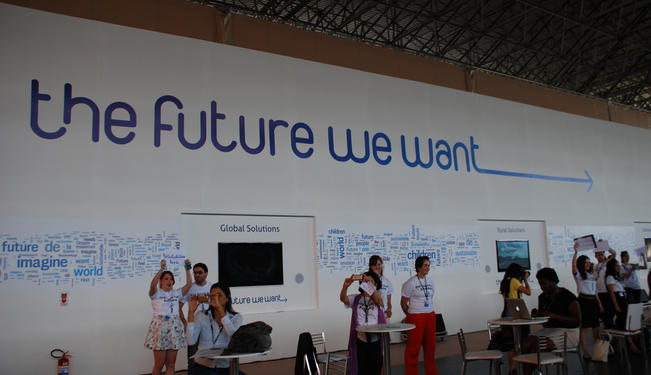
A summary of the 2012 Rio 20+ and past environmental forums.
Background
On June 20-22, 2012, 50,000 delegates representing 190 states descended upon Rio de Janeiro, Brazil to discuss sustainability and development. This years’ summit marked the 20th anniversary of the previous Rio Earth Summit held in 1992. The participating states focused on sustainable development strategies coupled with poverty reduction. The conference also addressed the need for an institutional framework to implement global cooperation.
This year’s Rio 20+ outlined seven priority areas: decent jobs, energy, sustainable cities, food security and sustainable agriculture, water, oceans and disaster readiness. The conference aimed to produce a list of Sustainable Development Goals (SDGs) in pursuit of a more equitable and environmentally sustainable world. These SDGs, it was hoped, might even replace the eight Millennium Development Goals, set to expire in 2015.
Following the conference, however, observers declared disappointment with the lack of progress. The Associated Press said, “This was a conference to decide to have more conferences. Negotiators agreed on a proposal that makes virtually no progress beyond what was signed at the original 1992 summit.”
Why is Rio 20+ relevant?
We are edging dangerously close to the earth’s carrying capacity, as populations are expected to reach 9 to 10bn by 2050 while consumption steadily increases. The UN estimates that by 2030, global food demand will double and energy use will rise by more than 45%.
Despite the need to act on these fronts, the world is preoccupied with fiscal crises and economic stagnation. Just days before Rio 20+, the G20 nations convened in Los Cabos, Mexico to discuss the euro crisis and the risk of a European banking failure. Meanwhile, developing countries remain hesitant to agree to any binding targets or goals, which they fear will negatively affect economic growth.
Rio 20+ continues the tone of failure in previous environmental conferences. The UN climate change conferences in Copenhagen in 2009, Cancun in 2010 and Durbin in 2011 also did not produce significant plans for the mitigation of climate change and the pursuit of environmental sustainability.
Due to the failures of past climate conferences, economic preoccupations and other domestic concerns, the leaders of the United States, the UK and Germany did not attend Rio+20. Barack Obama was busy fundraising for the US presidential elections this November, sending Secretary of State Hilary Clinton in his stead. UK Prime Minister David Cameron cited the G20 summit in Mexico as the reason for missing the conference. And German Chancellor Angela Merkel noted her concerns over the Greek elections and the ongoing euro zone crisis. This left the initiative to powerful developing countries such as Brazil, Russia, India and China.
An Alternative – the People’s Summit
While the Rio 20+ Earth Summit unfolded, an alternative forum took place on the outskirts of Rio de Janeiro, funded by the Brazilian government and NGO’s. In contrast to the Rio 20+ Earth Summit, the Rio 20+ People’s Summit was held informally in a series of intimate discussions in various tents. The proceedings were covered in detail by The Guardian UK in a blog and photo esssay.
For more than 10 years, Fair Observer has been free, fair and independent. No billionaire owns us, no advertisers control us. We are a reader-supported nonprofit. Unlike many other publications, we keep our content free for readers regardless of where they live or whether they can afford to pay. We have no paywalls and no ads.
In the post-truth era of fake news, echo chambers and filter bubbles, we publish a plurality of perspectives from around the world. Anyone can publish with us, but everyone goes through a rigorous editorial process. So, you get fact-checked, well-reasoned content instead of noise.
We publish 2,500+ voices from 90+ countries. We also conduct education and training programs on subjects ranging from digital media and journalism to writing and critical thinking. This doesn’t come cheap. Servers, editors, trainers and web developers cost money.
Please consider supporting us on a regular basis as a recurring donor or a sustaining member.
Support Fair Observer
We rely on your support for our independence, diversity and quality.
Will you support FO’s journalism?
We rely on your support for our independence, diversity and quality.





